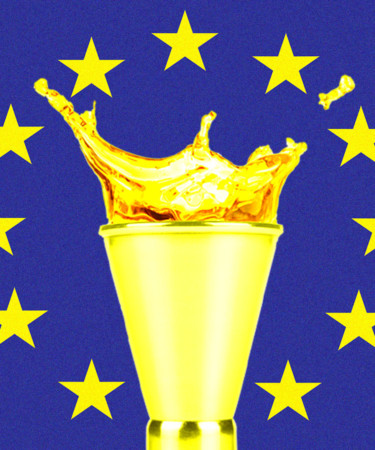The United States and European Union agreed on Friday to suspend tariffs relating to a longstanding dispute over civil aircraft subsidies. The announcement will see 25 percent duties on wine, spirits, liqueurs, and other consumer goods lifted for four months while the parties attempt to reach a permanent agreement.
President Biden and Ursula von der Leyen, the president of the European Commission (EC), reached the temporary agreement in a phone call on Friday. In a statement, EC executive vice-president and trade commissioner Valdis Dombrovskis described the news as “a significant step forward,” and said: “Removing these tariffs is a win-win for both sides, at a time when the pandemic is hurting our workers and our economies.”
Friday’s announcement suspends a 25 percent U.S. tax on wines from France, Germany, Spain, and the UK, introduced in October 2019. A similar duty on liqueurs and cordials from Germany, Ireland, Italy, and Spain, and Cognac and other grape brandies from France and Germany will also be lifted for the four-month period.
There’s good news, too, for many American distillers. The agreement also signals the suspension of a 25 percent EU tariff on American rum, brandy, and vodka.
The breakthrough in the lengthy trade dispute follows a similar agreement reached between the U.S. and U.K. governments on Thursday, which saw 25 percent levies on Scotch whisky lifted for four months.
The easing of U.S.-EU tensions has not extended to point of addressing a separate set of duties affecting America’s whiskey industry. That dispute dates back to May 2018, when the U.S. imposed tariffs on EU aluminum and steel products. In retaliation, the EU slapped a 25 percent tax on a number of American goods, including whiskey. The duty remains in both the EU and the U.K., and is set to double to 50 percent on June 1, 2021.
Much like it did on Thursday, the Distilled Spirits Council had a mixed reaction to Friday’s announcement. In a statement, the industry organization described the tariff suspension as “a promising break-through,” but lamented the continued tariffs of American whiskey, noting: “This excessive burden is unfair and not sustainable.”
